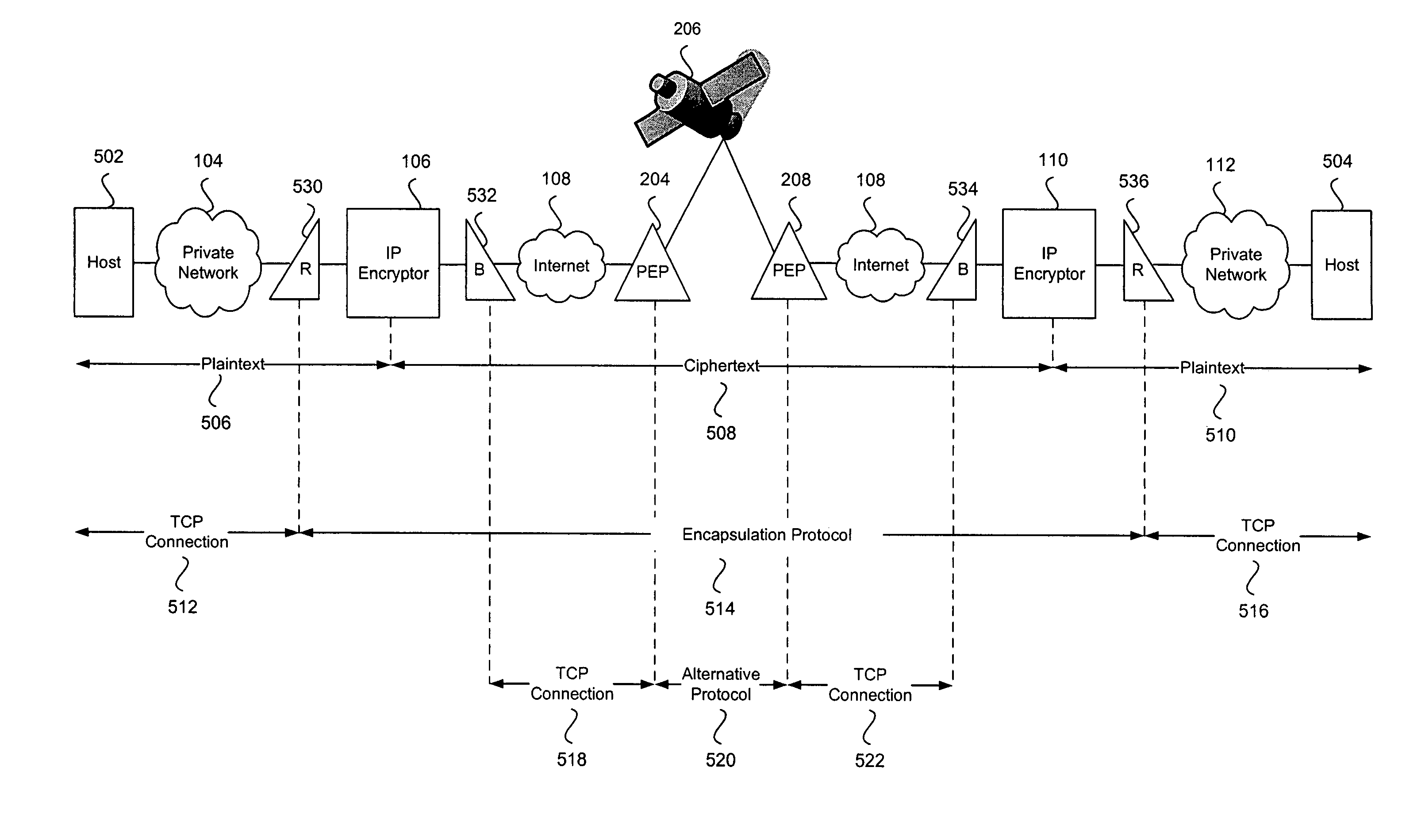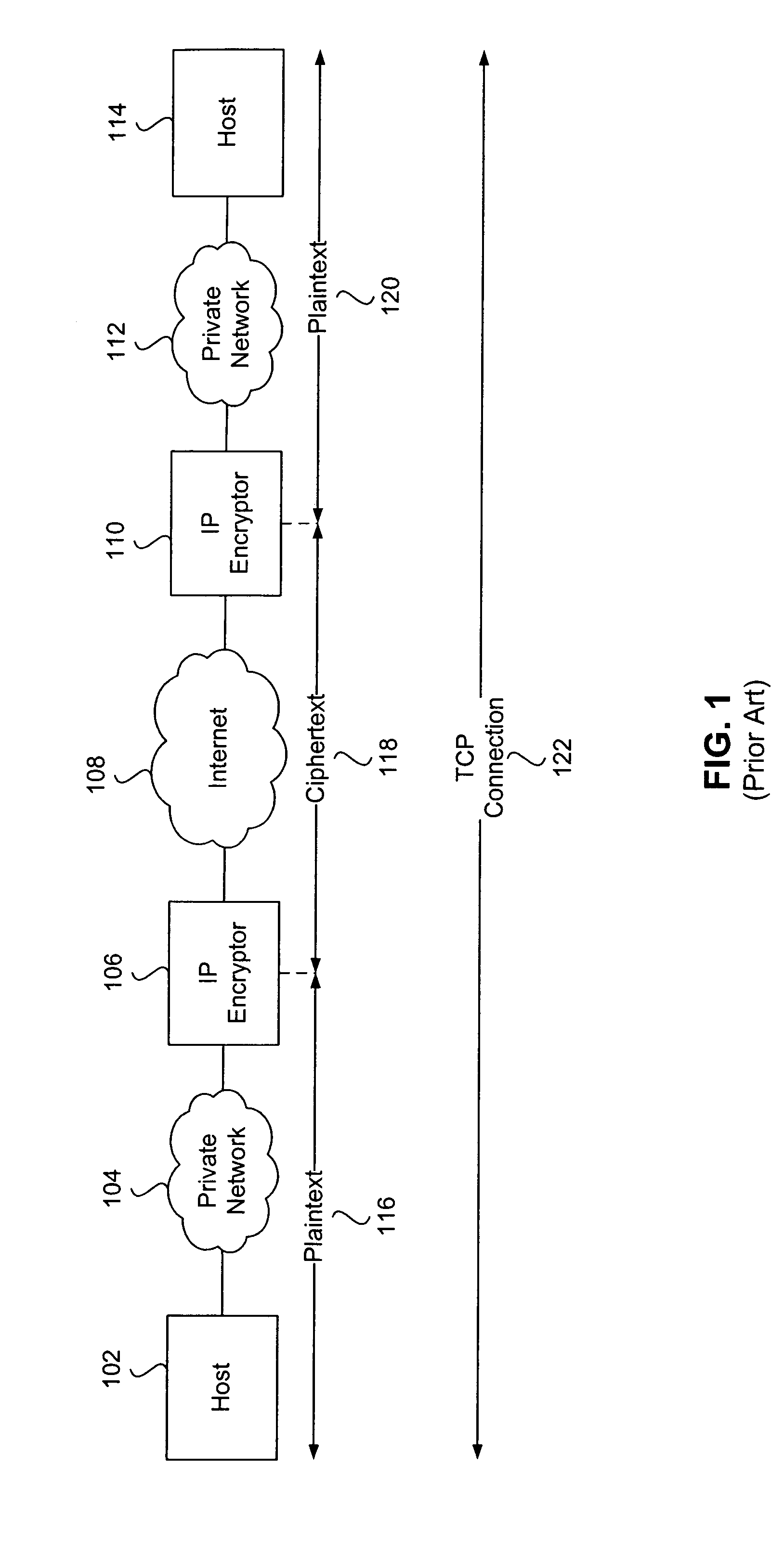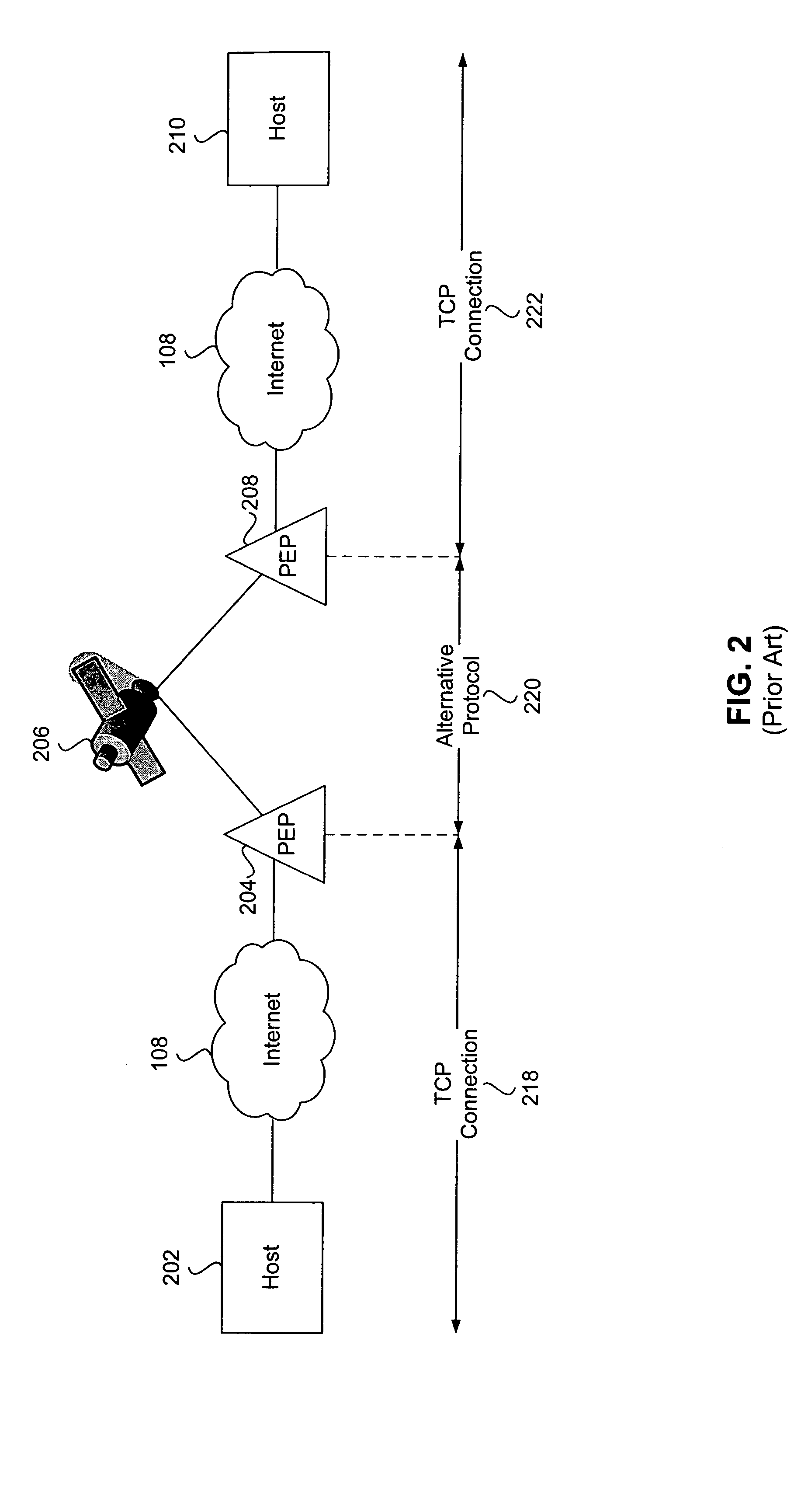System and method for using performance enhancing proxies with IP-layer encryptors
a technology of ip-layer encryptor and proxies, applied in the field of ip networking, can solve the problems of inability of corresponding black-side packets poor tcp operation over satellite connection, and inability to take advantage of black-side peps, etc., to achieve the effect of facilitating peps
- Summary
- Abstract
- Description
- Claims
- Application Information
AI Technical Summary
Benefits of technology
Problems solved by technology
Method used
Image
Examples
Embodiment Construction
1. IP-layer Encryptors (Prior Art)
[0028]FIG. 1 is an exemplary illustration of IP-layer encryptors deployed to enable secure transmissions over an insecure or public network. Host 102 is a member of the private network 104. Private network 104 is connected to the Internet 108 through IP-layer encryptor 106. Host 114 is a member of the private network 112, which is connected to the Internet 108 through IP-layer encryptor 110. Internet 108 is an example of an insecure public network. IP-layer encryptors 106 and 110 provide secure transmissions between private networks 104 and 112 over the Internet 108.
[0029]Private networks 104 and 112 and the Internet 108 are packet-based networks that can be represented, for example, by the Open System Interconnection (OSI) 7 layer reference model. Hosts in these networks communicate with each other by exchanging, for example, Internet Protocol (IP) packets at OSI layer 3 over links represented by OSI layers 1 and 2. Furthermore, hosts in these netw...
PUM
 Login to View More
Login to View More Abstract
Description
Claims
Application Information
 Login to View More
Login to View More - R&D
- Intellectual Property
- Life Sciences
- Materials
- Tech Scout
- Unparalleled Data Quality
- Higher Quality Content
- 60% Fewer Hallucinations
Browse by: Latest US Patents, China's latest patents, Technical Efficacy Thesaurus, Application Domain, Technology Topic, Popular Technical Reports.
© 2025 PatSnap. All rights reserved.Legal|Privacy policy|Modern Slavery Act Transparency Statement|Sitemap|About US| Contact US: help@patsnap.com



